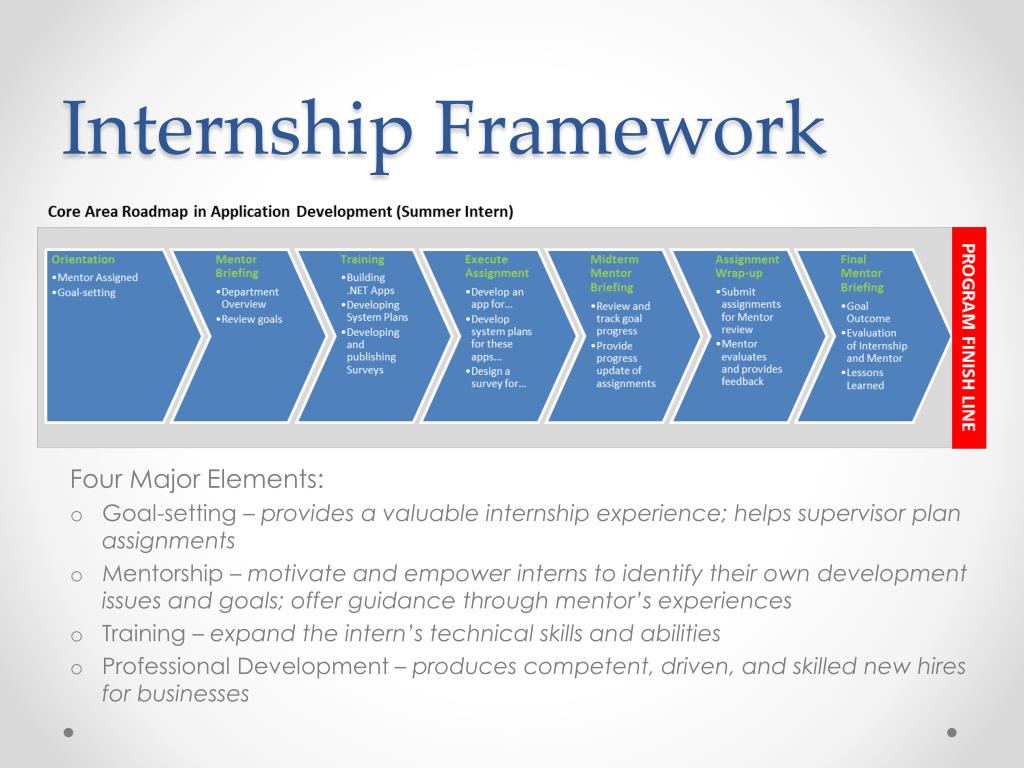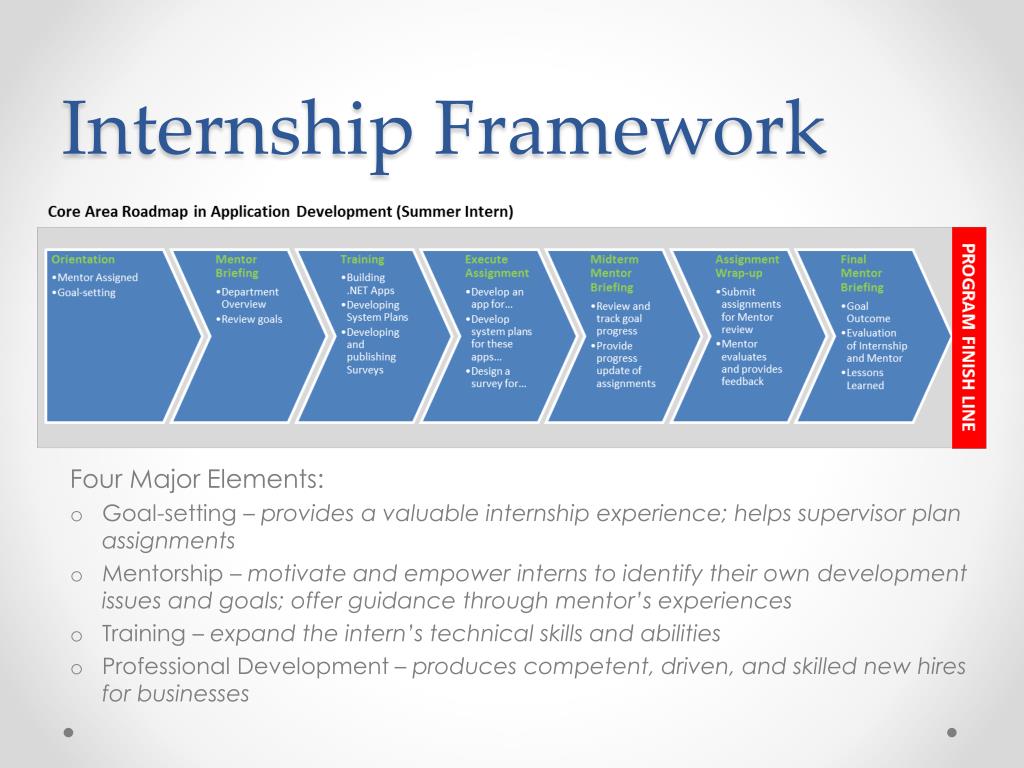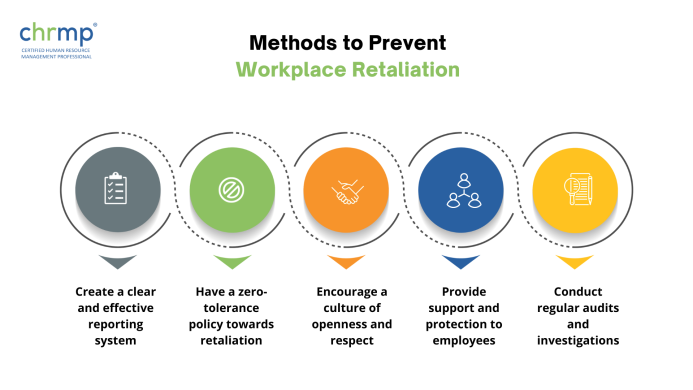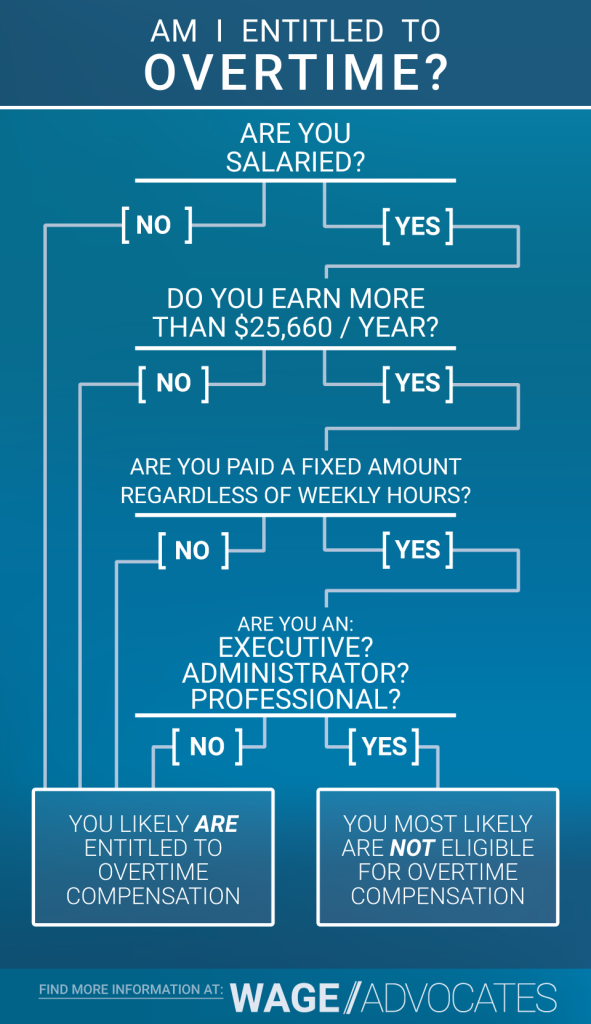
How to Structure a Successful Internship Program: A Comprehensive Guide for Businesses
In today’s competitive talent landscape, attracting and retaining top talent is more crucial than ever. While many businesses focus on experienced hires, a smart, forward-thinking strategy involves cultivating talent from the ground up. This is where a well-structured internship program shines.
An internship isn’t just about getting an extra pair of hands; it’s a powerful tool for talent acquisition, brand building, and fostering innovation. But simply bringing in an intern without a clear plan can lead to a less-than-ideal experience for everyone involved.
So, how do you create an internship program that benefits your company and provides a truly valuable experience for the intern? This comprehensive guide will walk you through every step, ensuring your program is a resounding success.
Why Invest in an Internship Program? The Benefits for Everyone
Before diving into the "how," let’s understand the compelling "why." A successful internship program offers significant advantages for both your organization and the aspiring professionals you bring on board.
Benefits for Your Company:
- Talent Pipeline: Interns are your future hires. You get to "test drive" potential full-time employees, observing their skills, work ethic, and cultural fit firsthand. This significantly reduces recruitment costs and risks down the line.
- Fresh Perspectives & Innovation: Students often bring new ideas, up-to-date knowledge from their studies, and a different way of looking at problems. This fresh perspective can spark innovation within your teams.
- Increased Productivity & Support: While not their primary purpose, interns can contribute to real projects, helping lighten the workload for your existing team members on specific tasks.
- Employer Branding & Reputation: A positive internship experience turns interns into ambassadors for your company. They’ll share their experience with peers, professors, and on social media, enhancing your reputation as a desirable place to work.
- Diversity & Inclusion: Internships are an excellent way to broaden your talent pool and foster a more diverse workforce, bringing in individuals from various backgrounds and experiences.
- Leadership Development for Employees: Mentoring an intern offers valuable leadership and coaching experience for your current employees, helping them grow professionally.
Benefits for the Intern:
- Real-World Experience: Interns gain practical experience in their field, applying classroom knowledge to actual business challenges.
- Skill Development: They learn new skills, tools, and industry best practices that are invaluable for their future careers.
- Networking Opportunities: Internships provide a chance to meet professionals, build connections, and establish a network that can open doors later on.
- Career Clarity: Interns can explore different roles and industries, helping them decide if a particular career path is truly for them.
- Mentorship & Guidance: They receive direct guidance and feedback from experienced professionals, accelerating their learning curve.
- Resume Building: A strong internship experience significantly boosts their resume, making them more competitive in the job market.
Phase 1: Laying the Groundwork – Strategic Planning
The foundation of any successful internship program is meticulous planning. Don’t rush this stage; a clear strategy will save you headaches later on.
1. Define Clear Goals & Objectives
What do you hope to achieve with this internship? Be specific.
- For the Company:
- "We want to identify and potentially hire one full-time junior marketing associate from this intern pool."
- "We aim to complete the market research for Project X."
- "We want to increase our social media engagement by X% with intern-led content creation."
- For the Intern:
- "The intern will gain hands-on experience in content writing and SEO best practices."
- "The intern will learn how to use Salesforce CRM and develop client communication skills."
Tip: Tie your internship goals directly to your business needs and the intern’s learning objectives. This ensures the program is purposeful.
2. Craft a Meaningful Role Description
This is not just a basic job ad; it’s a promise of what the intern will experience and learn.
- Job Be clear (e.g., "Marketing Intern," "Software Development Intern").
- Department/Team: Specify where they’ll be working.
- Responsibilities: List concrete tasks and projects they’ll work on. Avoid vague terms like "assist as needed." Instead, use:
- "Conduct competitive analysis and present findings."
- "Write blog posts (2 per week) optimized for SEO."
- "Develop and test front-end features for our mobile app."
- "Shadow client meetings and prepare meeting summaries."
- Learning Opportunities: Highlight what skills they will gain or improve.
- Required Skills/Qualifications: GPA, specific software knowledge, communication skills, etc.
- Duration & Schedule: Clearly state start/end dates and hours per week.
Remember: This description sets expectations. Be honest about the work involved and the learning environment.
3. Select the Right Mentors
The mentor is the linchpin of a great internship experience. They are the intern’s primary point of contact, guide, and teacher.
- Qualities of a Good Mentor:
- Experienced: Knowledgeable in the intern’s area of interest.
- Patient & Approachable: Willing to answer questions and explain concepts.
- Good Communicator: Provides clear instructions and constructive feedback.
- Enthusiastic: Genuinely interested in developing new talent.
- Time Availability: Has enough time to dedicate to the intern (don’t overload them).
- Training: Provide mentors with resources on effective coaching, giving feedback, and managing expectations. Make sure they understand their role and commitment.
- Workload Management: Ensure the mentor’s own workload allows for sufficient time to guide the intern.
4. Determine Logistics & Compensation
These practical details need to be sorted out early.
- Duration: Typically 8-12 weeks for summer internships, or a semester for part-time.
- Schedule: Full-time (40 hours/week) or part-time (e.g., 20 hours/week).
- Compensation:
- Paid Internships: Highly recommended. This attracts a wider, more diverse talent pool, demonstrates your value for their work, and can be crucial for students who need to earn money. Clearly state the hourly wage or stipend.
- Unpaid Internships: Generally only permissible if the intern is the "primary beneficiary" and the work is primarily for their educational benefit, not for the immediate advantage of the employer. Be very cautious and consult legal counsel if considering unpaid internships, as regulations vary by region and industry (e.g., U.S. Department of Labor guidelines are strict).
- Location: In-office, remote, or hybrid? If remote, how will you ensure engagement and support?
- Resources: What tools, software, desk space, or equipment will the intern need? Ensure everything is ready before they arrive.
5. Don’t Forget Legal & HR Checks
Compliance is critical to avoid issues.
- Internship Agreements: A formal agreement outlining responsibilities, compensation, duration, confidentiality, and intellectual property rights.
- Insurance: Ensure interns are covered by your company’s general liability and worker’s compensation insurance (if applicable).
- Discrimination & Harassment Policies: Ensure interns are aware of and protected by your company’s policies.
- Background Checks: If required for employees, consider if they are necessary for interns.
- Visa/Work Authorization: If hiring international students, understand the relevant visa requirements.
Phase 2: The Welcome Wagon – Seamless Onboarding
A strong start sets the tone for the entire internship. Make your intern feel welcome and integrated from day one.
1. Pre-Arrival Preparation
- Welcome Packet: Send an email a week or two before their start date with:
- Start date, time, and location details.
- Dress code (if any).
- First-day agenda.
- Who to report to.
- Any pre-reading or preparatory tasks.
- Information about the company culture, mission, and values.
- Workspace & Equipment: Ensure their desk, computer, software access, and any necessary tools are set up and ready to go before they walk in. Nothing says "unprepared" like a missing laptop.
- Team Notification: Inform the team about the new intern’s arrival, their role, and start date. Encourage them to introduce themselves.
2. A Warm First Day
- Personal Welcome: Have the mentor or HR representative personally greet the intern on their first day.
- Introductions: Introduce the intern to their team members and key people they’ll be working with. A quick team lunch can be a great icebreaker.
- Office Tour: Show them the essentials – restrooms, breakroom, emergency exits.
- IT Setup: Help them log in, set up email, and access necessary systems. Don’t leave them struggling with tech.
- Onboarding Session: Review company policies, values, mission, and organizational structure. Explain how their role fits into the bigger picture.
- First Project/Task: Give them a small, manageable task to start immediately. This helps them feel productive and get familiar with workflows.
Phase 3: The Learning Journey – Engaging Work & Development
This is the core of the internship: providing meaningful work and fostering growth.
1. Real Projects, Real Impact
Avoid "busy work" at all costs. Interns want to contribute and see their impact.
- Assign Meaningful Tasks: Give them projects that align with their skills and interests, and that contribute to company goals.
- Clear Deliverables: Define what success looks like for each task or project.
- Variety of Work: Offer a mix of tasks to expose them to different aspects of the role and industry.
- Shadowing Opportunities: Allow them to observe meetings, client calls, or presentations relevant to their field.
2. Structured Learning Opportunities
Beyond daily tasks, actively facilitate their learning.
- Training Sessions: Provide access to relevant internal training, webinars, or online courses.
- Workshops: Organize workshops on topics like presentation skills, professional communication, or industry trends.
- Cross-Departmental Exposure: If feasible, allow them to spend a few hours in other departments to understand how different functions connect.
- Research Projects: Give them topics to research and present to the team, developing their research and presentation skills.
3. Consistent Feedback & Growth
Feedback is crucial for an intern’s development.
- Regular Check-ins: Schedule weekly or bi-weekly 1:1 meetings with their mentor to discuss progress, challenges, and learning.
- Constructive Feedback: Provide specific, actionable feedback – both positive reinforcement and areas for improvement. Use the "sandwich method" (positive, constructive, positive).
- Two-Way Feedback: Encourage interns to provide feedback on their experience, the projects, and the mentorship they’re receiving. This shows you value their perspective and helps you improve the program.
- Goal Setting: Work with the intern to set short-term and long-term learning goals for their internship.
4. Foster Networking & Culture
Help interns feel like part of the team and connect with others.
- Team Activities: Include interns in team lunches, social events, or company-wide gatherings.
- Informational Interviews: Encourage them to schedule brief chats with other employees to learn about different roles and career paths within the company.
- Networking Events: If appropriate, invite them to industry events or internal networking opportunities.
- Buddy System: Consider assigning a "buddy" (a junior employee) who can answer informal questions and help them navigate the company culture.
Phase 4: Nurturing Success – Ongoing Support & Mentorship
The relationship with their mentor is perhaps the most impactful part of the internship.
1. The Power of a Dedicated Mentor
- Availability: Mentors should be genuinely available to answer questions, offer guidance, and provide support.
- Guidance, Not Just Delegation: Mentors should guide interns through challenges, helping them learn to problem-solve, rather than just giving them solutions.
- Professional Development: Discuss career paths, resume tips, interview skills, and provide general professional advice.
- Advocacy: Mentors can advocate for their interns, highlighting their contributions to others in the company.
2. Regular Check-ins & Open Communication
- Structured Meetings: Beyond informal chats, schedule dedicated 30-60 minute meetings weekly or bi-weekly.
- Agenda: Have a loose agenda covering:
- What the intern has accomplished.
- What challenges they’re facing.
- What they’re learning.
- Upcoming tasks/projects.
- Any questions or concerns they have.
- Open Door Policy: Encourage interns to feel comfortable approaching their mentor with any questions or issues, big or small.
Phase 5: The Grand Finale – Evaluation & Offboarding
The end of the internship is just as important as the beginning. It’s a chance to solidify learning and maintain valuable connections.
1. Performance Reviews & Mutual Feedback
- Formal Performance Review: Conduct a structured review session towards the end of the internship.
- Mentor’s Feedback: Provide a comprehensive assessment of the intern’s performance, strengths, areas for improvement, and overall contribution.
- Intern’s Self-Assessment: Ask the intern to reflect on their own performance, what they learned, and what they would do differently.
- Program Feedback: Ask the intern for their honest feedback on the internship program itself. What worked well? What could be improved? This is invaluable for refining future programs.
- Career Discussion: Discuss the intern’s career aspirations and how this experience fits into their long-term goals. If there’s a potential for future employment, discuss it openly.
2. Farewell & Future Connections
- Farewell Gathering: A small team lunch or gathering to thank the intern for their contributions.
- Certificate of Completion/Letter of Recommendation: Provide a formal document acknowledging their successful completion of the internship. Offer to write a detailed letter of recommendation if their performance warrants it.
- Portfolio/Work Samples: Help the intern compile any work samples or projects they can use in their professional portfolio (ensuring confidentiality agreements are respected).
- Stay in Touch:
- LinkedIn: Encourage connecting on LinkedIn.
- Alumni Network: If you plan to have a robust internship program, consider creating an "intern alumni network" for future communication and potential recruitment.
- Future Opportunities: Keep them in mind for future full-time roles, even if it’s not immediately after their internship.
Common Pitfalls to Avoid
Even with the best intentions, some common mistakes can derail an internship program. Be aware of these:
- Treating Interns as "Free Labor": Assigning only menial, repetitive tasks that offer no learning or challenge. This leads to disengagement and a negative reputation.
- Lack of Structure: No clear projects, responsibilities, or mentorship. Interns end up feeling lost and unproductive.
- Poor Onboarding: Leaving interns to fend for themselves on day one, without proper introductions or system access.
- Neglecting Mentorship: Assigning a mentor who is too busy, uninterested, or untrained to provide proper guidance.
- No Feedback: Failing to provide regular, constructive feedback, leaving interns unaware of their performance or areas for growth.
- Isolation: Not integrating interns into the team or company culture, making them feel like outsiders.
- Unrealistic Expectations: Expecting interns to perform at the same level as experienced full-time employees from day one.
- Ignoring Legal Compliance: Especially regarding compensation and work requirements for unpaid internships.
Conclusion: Investing in Your Future Talent
Structuring a successful internship program requires dedication, planning, and a genuine commitment to developing young talent. It’s more than just providing a job; it’s about creating a rich learning environment where students can thrive, contribute meaningfully, and gain invaluable real-world experience.
By following these steps, you’re not just offering an internship; you’re building a powerful talent pipeline, enhancing your company’s reputation, and fostering a culture of continuous learning and innovation. Invest in your interns, and you’ll be investing directly in the future success of your organization.
Ready to build your successful internship program? Start by defining those clear goals and finding the right people to mentor your future leaders!




Post Comment